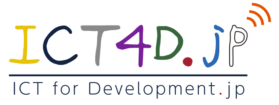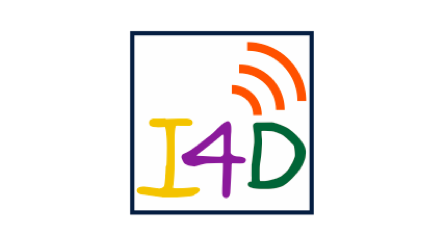Greentree Consensusというイニシアチブが、9 Principles for Digital Developmentというものを発表した。分かり易く勝手に解釈すると、「ICT4Dプロジェクト成功のための9つ鍵」みたいなものだ。そうそうたるメンツの援助機関(Bill and Melinda Gates Foundation, USAID, UNICEF, The World Bank, SIDA, Omidiyar Foundation, The State Department, WHO, HRP, UNHCR, WFP, UNFPA, UNDP, Global Pulse, UNWomen, and OCHA)が集まって協議し、作成された9つの鍵は以下のとおり。どれをとっても「正にそのとおり」である。
一方で、「言うは易く行うは難し」というのも、また現実。例えば、最初のDesign with the Userにしても、重要性は間違いないけれども、真のuser participationを実現するには、時間もお金もかかる。また、6番目のOpen Standard…について考えてみると、民間企業が実施するICT4Dプロジェクトの場合、その企業の飯のタネである技術をどこまでオープンに出来るのか?という課題が。そして、8番目のセキュリティについては、堅牢にしようと思えばお金がいくらあっても足りないのでは?という気も。
この秋、神戸情報大学院でICT4Dについての授業をさせてもらい、アフガニスタンやルワンダからの学生と興味深い議論を沢山させてもらった。その中で、毎回行き詰まるのが、やはりお金(プロジェクトの予算)の問題だった。ICT4Dプロジェクトのリスクや解決策を考えてみると、最終的には、「あるべき論は導きだせるが、それを実行に移すための資金が問題」というのが、ボトルネックであると気づく。自分が教えているのは、セオリーなので、ICT4Dプロジェクトのリスクや解決策を考えるためのフレームワークは伝えることがで来ても、この問題の解決策については、うまい回答がなかった。
この点は今後の自分の課題として、引き続き考えて行きたいところです。
Principles for Digital Development
- Design with the User
- Develop context appropriate solutions informed by user needs.
- Include all user groups in planning, development, implementation and assessment.
- Develop projects in an incremental and iterative manner.
- Design solutions that learn from and enhance existing workflows and plan for organizational adaptation.
- Ensure solutions are sensitive to, and useful for, the most marginalized populations: women, children, those with disabilities, and those affected by conflict and disaster.
- Understand the Existing Ecosystem
- Participate in networks and communities of like-minded practitioners.
- Align to existing technological, legal, and regulatory policies.
- Design for Scale
- Design for scale from the start, and assess and mitigate dependencies that might limit ability to scale.
- Employ a “systems” approach to design, considering implications of design beyond an immediate project.
- Be replicable and customizable in other countries and contexts.
- Demonstrate impact before scaling a solution.
- Analyze all technology choices through the lens of national and regional scale.
- Factor in partnerships from the beginning and start early negotiations.
- Build for Sustainability
- Plan for sustainability from the start, including planning for long-term financial health e.g., assessing total cost of ownership.
- Utilize and invest in local communities and developers by default and help catalyze their growth.
- Engage with local governments to ensure integration into national strategy and identify high-level government advocates.
- Be Data Driven
- Design projects so that impact can be measured at discrete milestones with a focus on outcomes rather than outputs.
- Evaluate innovative solutions and areas where there are gaps in data and evidence.
- Use real-time information to monitor and inform management decisions at all levels.
- When possible, leverage data as a by-product of user actions and transactions for assessments.
- Use Open Standards, Open Data, Open Source, and Open Innovation
- Adopt and expand existing open standards.
- Open data and functionalities and expose them in documented APIs (Application Programming Interfaces) where use by a larger community is possible.
- Invest in software as a public good.
- Develop software to be open source by default with the code made available in public repositories and supported through developer communities.
- Reuse and Improve
- Use, modify and extend existing tools, platforms, and frameworks when possible.
- Develop in modular ways favoring approaches that are interoperable over those that are monolithic by design.
- Address Privacy & Security
- Assess and mitigate risks to the security of users and their data.
- Consider the context and needs for privacy of personally identifiable information when designing solutions and mitigate accordingly.
- Ensure equity and fairness in co-creation, and protect the best interests of the end end-users.
- Be Collaborative
- Engage diverse expertise across disciplines and industries at all stages.
- Work across sector silos to create coordinated and more holistic approaches
- Document work, results, processes and best practices and share them widely.
- Publish materials under a Creative Commons license by default, with strong rationale if another licensing approach is taken.



コメント
9つの鍵って、マーケティング(セリングじゃないですよ by コトラー)に近いフレームワークに見えますね。
9つの鍵すべてを理解するスーパーマンやエスパーはいないとして、発注側(ここでは援助機関)の人が意識して理解してほしいのは、「3. Understand the Existing Ecosystem」と「5. Be Data Driven」です。企画や超上流工程を担う人が意識するべきなのは「1. Design with the User」だと考えます。ただし、両者とも、ICTシステムのユーザーインターフェースのみに関心が集中してしまっているので、それ以外の要素は理解しようともしないでしょう。たとえ大事であっても。
逆に、「4.Build for Sustainability」は誤用が目立ちすぎるところです。ICTシステム単体の話ではないはずなのに、お金の話のみに終始した場合「メンテナンス費用が出せないなら最初から何も作らないのがベスト」に落ち着いてしまいます。
*******
援助機関が手がけたICT/IT系のプロジェクトって、(ICT/ITの)開発者向けドキュメントが残っていません。ICT/IT絡みのシステムを構成していると、「次にシステムに手を入れるであろう(誰かはわからないけど)技術者へ向けたデータドリブン的な説明資料」を作っておきたいもんですけどー。処理系やUIは、その時点でのやりやすいツールや流行でやればよいでしょうから。
しかし、官僚系発注者様の「俺様が理解できる報告書」が優先されるあまり、テクニカルドキュメントの作成ができてないっぽい(アカウンタビリティの誤用だろうと思います)。受注側でも、「そんなもん作っているヒマがあれば(どうせ対価はつかないし)…」という方向になってしまいます。
********
また、ICT/ITの「技術力」って、「ビジネスコンサルや山師がでっち上げた思いつきが実現しなかった時に、不足しているとされる」責任転嫁の対象でしょうし。なぜその思いつきが実現できると考えたのか、には言及されない事の方が多いのはなぜだろう(笑)。
加えて、「一週間の”ワークショップ”でどうにかなるだろ?」的な要素にもなりますね。日本国内では、多くのインフラや法・システムやそれに関わる多くの人(縁の下の力持ち)、および利用者個人の基礎学力と経済力が、個人のICT/ITリテラシの低さを補っているのですが、途上国ではそうもいかないんですよね。
Ozakiさん:相変わらず示唆に富んだコメントありがとうございます。苦い経験に裏打ちされた感じの内容に伝わってくるものがありますね。最後の「日本国内では、多くのインフラや法・システムやそれに関わる多くの人(縁の下の力持ち)、および利用者個人の基礎学力と経済力が、個人のICT/ITリテラシの低さを補っているのですが、途上国ではそうもいかないんですよね。」というのはその通りですね。そういう要素もひっくるめてプロジェクトをデザインすべしというのが「Employ a “systems” approach」というものなんだと理解してます(Soft Systems Methodology的な)。
んまー、直近の業務というのでもありませんが、その種のネタは豊富ですー(笑)。
オープンデータ関連で言えば、(佐賀県、というのがアレなので割り引いて捉える必要はありますが)『コンサルティング会社などが、一度自治体の情報を全部見て解体し、必要なもの・いらないものを整理して欲しい。それができるとずいぶんと変わってくると思います』なんて言う人も出てきてはいるので、これから徐々に日本国内でも取り組みは進むのでしょう。でもいわゆるEA(Enterprize Architecture)って、組織末端の課長さんがセコセコ動くネタじゃなく、組織上位にCIO相当の人(外部招聘可)と、その手足になって動く人たち(組織プロパー)がいないとマジで厳しいんじゃないかと。
http://enterprisezine.jp/iti/detail/6351
途上国の場合、援助機関が率先して(C/Pの関係や棲み分けという名の下に)サイロを作っているようなところが見受けられるので、余計にシンドイです。CIOっぽいアドバイザーがいたところで大抵は欧米人だしなぁ。
それにしても、「9 Principles for Digital Development」に関わる「そうそうたるメンツの援助機関」に、ぱっと見て日本が入っていない…寂しい限り。2000年の九州沖縄サミットは遥か昔になったと感じます。